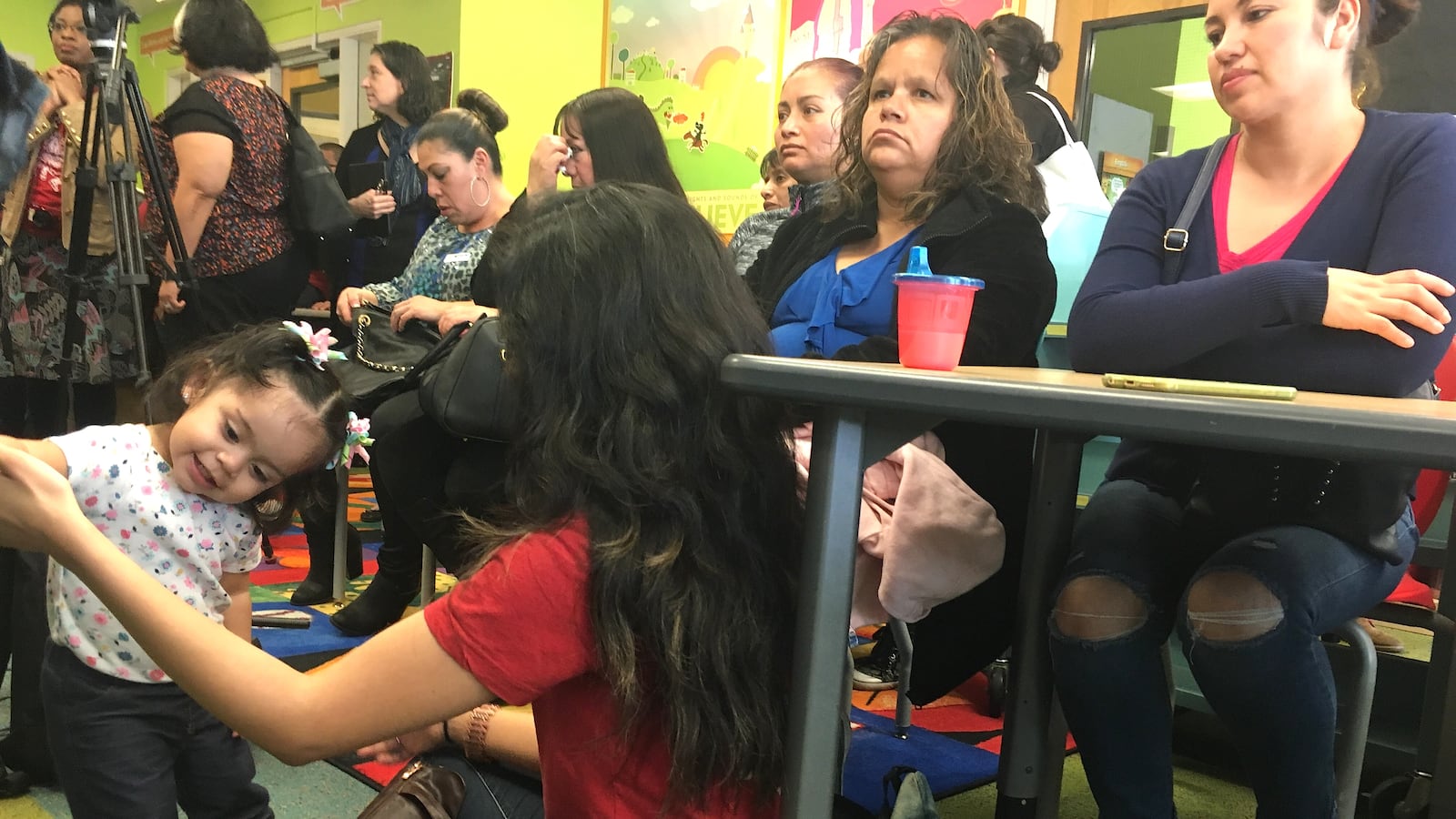Denver Public Schools announced plans Wednesday to eliminate out-of-school suspensions and expulsions for preschool through third grade students except in the most serious incidents.
District officials say the move puts DPS on the cutting edge of discipline reform nationally and builds on its work over the last 10 years to reduce suspensions and expulsions for all students, and replace traditional discipline methods with restorative justice techniques.
Wednesday’s announcement during a press conference at Godsman Elementary School came as state lawmakers are considering legislation that would curb suspensions and expulsions in preschool through second grade. The district’s new policy and the proposed legislation represent milestones in the years-long discussion in the state and nation about the disproportionate use of harsh discipline tactics on boys, students of color and students with disabilities.
The district’s new early childhood discipline policy will be unveiled at Thursday’s school board meeting and will be followed by a 60-day public comment period before it is finalized. It will take effect July 1.
District officials and representatives from local advocacy groups emphasized that the new policy will be accompanied by efforts to provide teachers and other staff with support in using alternative methods to suspension or expulsion.
“We really want to address the issue of student behavior. We really want to address also the issue of adult behavior and give adults a better set of tools and take out the hammer that you don’t need in your tool box…Some tools should not be in the toolbox when we are looking at babies,” said Ricardo Martinez, co-executive director of the Denver-based group Padres & Jovenes Unidos.
Superintendent Tom Boasberg said about 500 students in preschool to third grade were suspended last year — most of those in second and third grade. None were expelled.
Under the new policy, suspensions would still be allowed in rare cases if a student poses a serious threat to himself or others. In those cases, suspensions would be limited to one day.
While several school districts and states have banned or significantly curtailed suspensions and expulsions for young students, most focus on students through second grade.
Eldridge Greer, the district’s associate chief of student equity and opportunity, said part of the reason DPS chose to extend its policy through third grade is to ensure kids are proficient in reading and math by the end of third grade.
“There’s no way we can reach that goal if a student is not in class,” he said.

